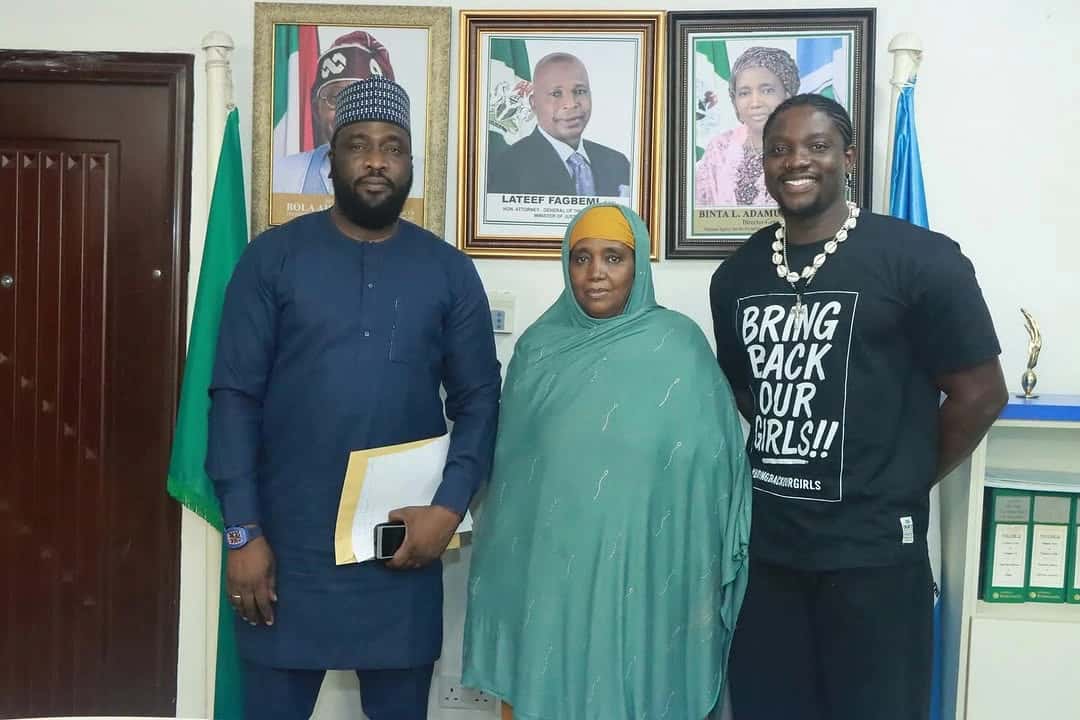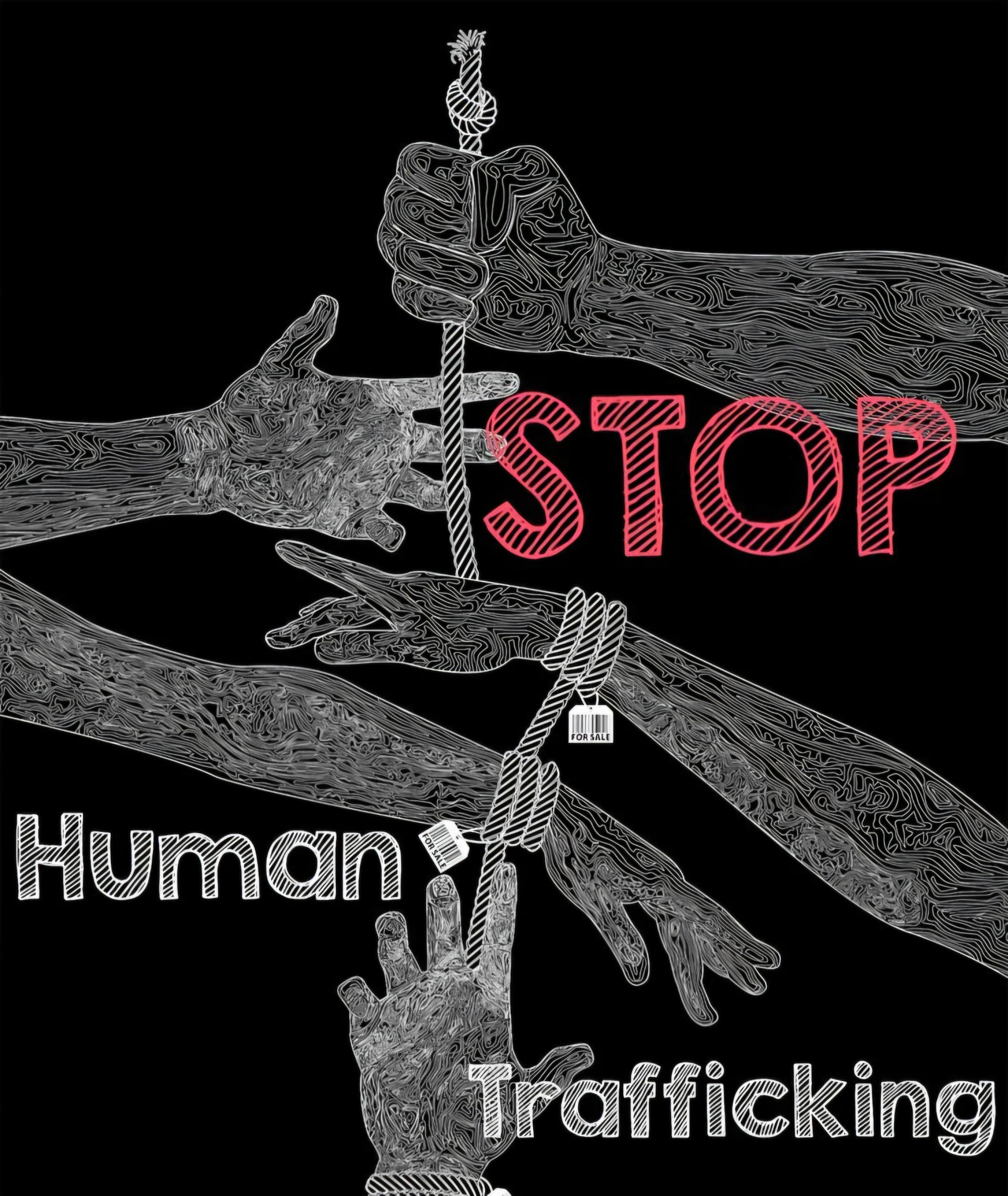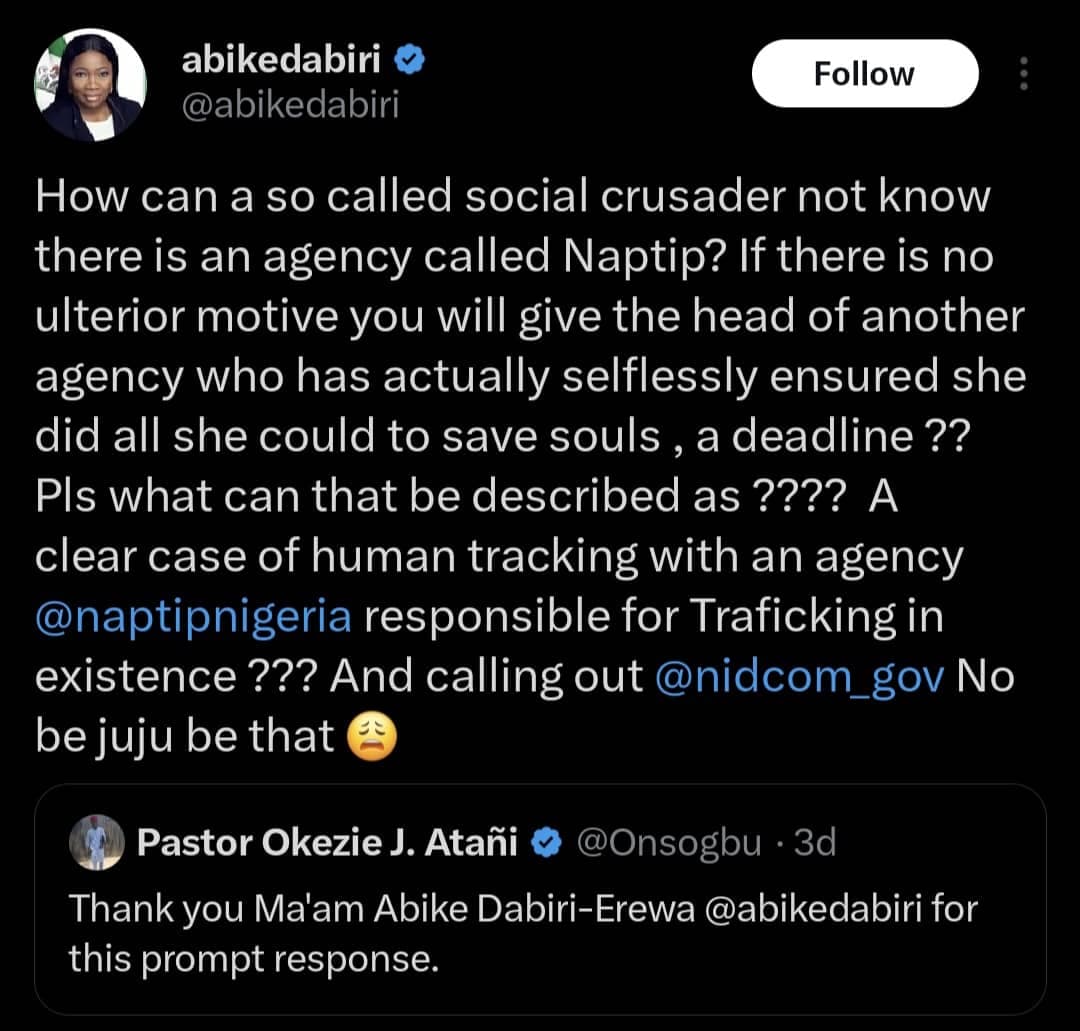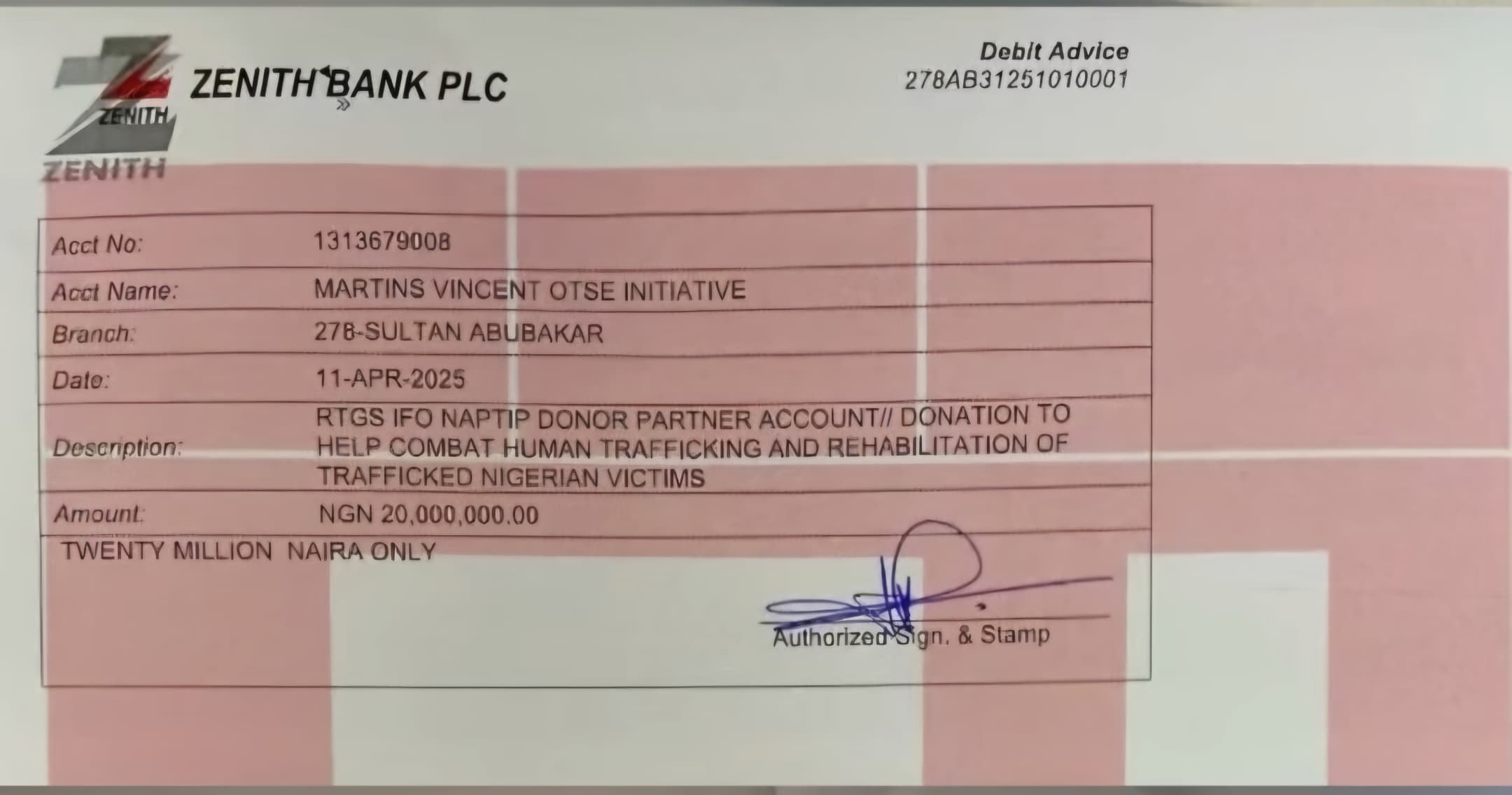NAPTIP Coerced To Do Its Job As Human Trafficking Surges

Published on:

It took a loud, public outcry before the National Agency for the Prohibition of Trafficking in Persons (NAPTIP) was forced to remember what it was created to do. In a country where government bodies often operate on autopilot, it took the intervention of a civilian to shine a light on one of the darkest corners of our society—human trafficking.
Nigerian Girls Trapped in Ivory Coast Rescued by a Foreign Orphanage
The revelation came not through any formal announcement or government initiative, but from popular Nigerian activist and philanthropist, Martins Vincent Otse—better known as Verydarkman. In a heartbreaking Instagram post, he shared footage of several underage girls, visibly distressed, recounting how they were taken from their home states in Nigeria and trafficked to Ivory Coast.
It wasn’t NAPTIP that found them. It wasn’t any Nigerian embassy. It was an orphanage in Ivory Coast that gave these girls a safe space, and it was the orphanage’s founders who eventually reached out to Verydarkman for help. According to them, NAPTIP and other anti-trafficking organizations had already visited, made promises, and disappeared without fulfilling any of them.
NAPTIP’s Inaction Exposed as Citizens Demand Accountability
For an agency with a clear mandate, NAPTIP’s recent silence has been deafening. Established in 2003 under the Trafficking in Persons (Prohibition) Enforcement and Administration Act (TIPPEA), NAPTIP was designed to be a safeguard for victims of trafficking. Its job is to investigate, rescue, prosecute, and rehabilitate but in this case, it did none of those things until the pressure became impossible to ignore.
Vincent didn’t just raise the alarm; he backed it with action. He made it clear that these girls weren’t isolated victims. There are countless others still out there, trapped in conditions too terrifying to imagine. He also reminded Nigerians that he’s just one man, and no matter how influential, he cannot solve this crisis alone.
Verydarkman Gives Government an Ultimatum
In a move that sparked national attention, Verydarkman publicly gave a one-week ultimatum to the Chairman of the Nigerians in Diaspora Commission (NiDCOM), Abike Dabiri. His demand was simple: bring back the girls, or be held accountable for gross negligence. He didn't mince words or sugarcoat the reality. His message was loud, raw, and necessary.

Instead of responding constructively, Abike Dabiri took to social media and tried to distance herself from the responsibility. In her response on X (formerly Twitter), she claimed the rescue and repatriation of trafficked girls falls under NAPTIP's jurisdiction, not hers. What followed was a series of retweets that mocked and dismissed the very real pain of the victims involved.
Twenty Million Naira Donation Sparks Nationwide Movement

While government officials debated responsibility on social media, Verydarkman took another bold step, he donated twenty million naira to NAPTIP to assist in the repatriation of trafficked girls. It was a move that quickly shifted the narrative from outrage to action.
The gesture stirred something powerful. Citizens began to rally. Private individuals and organisations started offering help. Among the most notable supporters is Allen Onyema, Chairman of Air Peace, who publicly pledged to provide flights and medical assistance for the rescued girls.
His involvement added a new layer of urgency to the situation, and it showed what happens when people in positions of influence decide to do more than just speak, they act.
This isn’t just about the girls in Ivory Coast. It’s about the many others in Mali, Libya, the UAE, and across parts of Europe who are living as modern-day slaves while government agencies posture and play blame games.
If anything, this moment proves that Nigerians are tired. Tired of hollow agencies. Tired of slow responses. Tired of leaders who only remember their job titles when the cameras are on.
But it also shows something else, something much more powerful. It shows that Nigerians still care. That there’s a groundswell of compassion rising from the most unexpected places. And when ordinary people start doing the job of entire government bodies, that says everything about the state of our institutions.